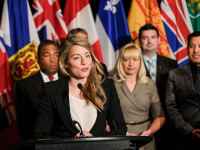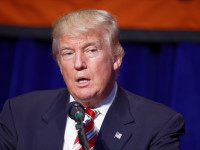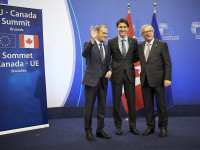Canadian Heritage Minister Mélanie Joly launched her surprise national consultation on Canadian content in a digital world last April with considerable excitement for the possibilities of revolutionizing policies born in an analog era. Joly spoke enthusiastically about the potential for Canadian creators to use digital networks to reach global audiences and for all stakeholders to rethink the cultural policy toolkit.
My Globe and Mail op-ed notes that submissions to the consultation closed last week and despite the hope for new, innovative thinking, many of Canada’s largest cultural groups placed their bets on extending a myriad of funding mechanisms to the Internet. Rather than overhauling older programs, the groups want those policies expanded by mandating new fees, costs or taxes on Internet services, Internet service providers, Internet advertisers, and even the sale of digital storage devices such as USB keys and hard drives.











